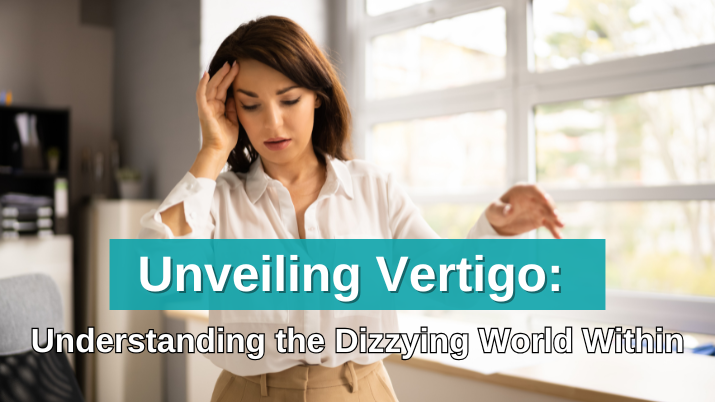Imagine standing still while the world spins around you. The room seems to sway, and a simple turn of the head brings a wave of nausea. This unsettling sensation isn’t just in your imagination—it could be vertigo. Often misunderstood and casually dismissed as just another spell of dizziness, vertigo is a complex condition that deserves a deeper look.
What is Vertigo?
Vertigo is more than feeling lightheaded or woozy. It is a specific type of dizziness that creates a false sensation of movement. Most commonly, people feel like they or their surroundings are spinning, even when completely stationary. It can last seconds, minutes, or in some cases, persist for days.
This sensation stems from problems within the vestibular system—the parts of the inner ear and brain that control balance and eye movements. When this system gets disrupted, the brain receives mixed signals about body position, causing the disorienting symptoms of vertigo.
Common Causes
Vertigo is a symptom, not a standalone diagnosis. Identifying the underlying cause is key to proper treatment. Here are a few of the most common culprits:
- Benign Paroxysmal Positional Vertigo (BPPV): This occurs when tiny calcium crystals in the inner ear become dislodged and move into areas they shouldn’t be, disrupting balance.
- Meniere’s Disease: A disorder characterized by fluid buildup in the inner ear, leading to episodes of vertigo, hearing loss, and tinnitus (ringing in the ears).
- Vestibular Neuritis or Labyrinthitis: Inflammation of the inner ear, often caused by viral infections, that can cause sudden and severe vertigo.
- Migraines: Some people experience vertigo as part of a migraine episode, even without a headache.
Recognizing the Symptoms
Vertigo often comes with more than just a spinning sensation. Many sufferers also report:
- Nausea or vomiting
- Unsteadiness or difficulty walking
- A feeling of motion even while resting
- Nystagmus (uncontrolled eye movements)
- Sweating or anxiety
For some, these symptoms can be mild and fleeting. For others, they are debilitating and disrupt daily life.
The Role of an ENT Doctor in Treating Vertigo
When vertigo strikes, one of the most important steps toward recovery is consulting the right specialist. This is where an ENT doctor (Ear, Nose, and Throat specialist) — also known as an otolaryngologist—plays a vital role.
Since most cases of vertigo are linked to the inner ear, ENT doctors are trained to diagnose and treat disorders affecting the balance organs.
Here’s how ENT specialists help:
- Accurate Diagnosis: ENT doctors use specialized tools and tests like videonystagmography (VNG), audiometry, and balance assessments to pinpoint the cause of vertigo.
- Targeted Treatments: Whether it’s BPPV requiring canalith repositioning maneuvers or Meniere’s disease needing dietary and medication strategies, ENT doctors customize treatment based on the root issue.
- Monitoring and Management: For chronic or recurring vertigo, ENT doctors provide ongoing care and adjust treatment plans to improve quality of life.
- Referrals: If the issue extends beyond the ear (like neurological causes), ENT doctors coordinate with neurologists or other specialists for comprehensive care.
In short, ENT doctors are central to both the diagnostic process and treatment journey for vertigo patients.
Diagnosis and Treatment
Diagnosing vertigo usually involves a combination of physical exams, medical history, and balance tests. In some cases, imaging like an MRI may be needed to rule out neurological conditions.
Treatment depends entirely on the cause. For BPPV, simple head maneuvers like the Epley maneuver can help reposition the inner ear crystals. For other conditions, treatment may include:
- Medication: To control nausea or inflammation.
- Vestibular rehabilitation therapy: A type of physical therapy that retrains the brain to process balance signals correctly.
- Dietary changes: Especially in cases of Meniere’s disease, reducing salt and caffeine can ease symptoms.
Final Thoughts
Vertigo may turn your world upside down—literally—but understanding it is the first step toward reclaiming balance. Whether it’s a one-time episode or a chronic condition, knowing the causes, symptoms, treatments, and the critical role of ENT doctors can empower you or your loved ones to seek the right help at the right time.




